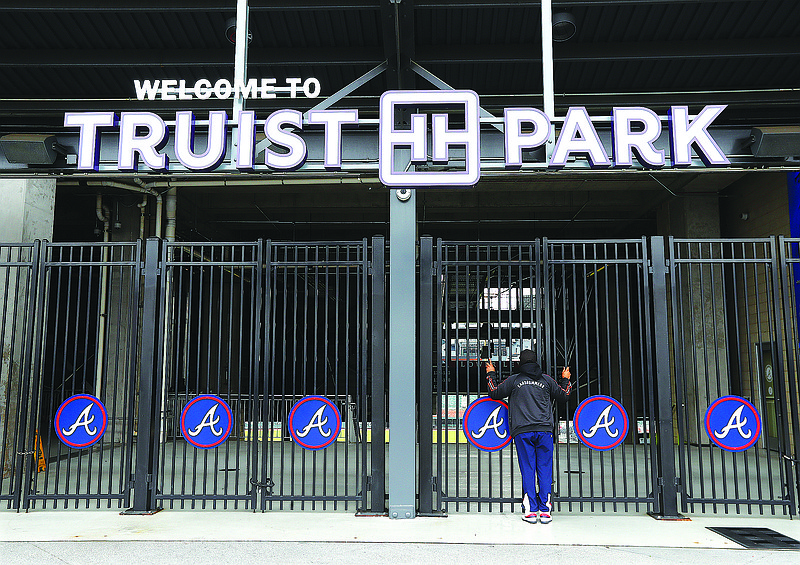When the Braves earned Atlanta its first professional championship in a major sport with the 1995 World Series crown, they did so following a shortened regular season of 144 games.
The Los Angeles Dodgers won their 1981 World Series title after playing a 110-game regular season that had to be split into first and second halves.
Those two seasons had their lengths affected by work stoppages and not the COVID-19 pandemic, which scratched last Thursday's annual excitement of opening day. Major League Baseball commissioner Rob Manfred said last week that he hoped his sport would be "gearing back up" in May, which could result in a mid or late June start at the earliest.
Should it be delayed beyond that, baseball could be facing the issue of what constitutes a legitimate season.
"That's a really important question," said Jayson Stark, the senior baseball writer for The Athletic who also works for the MLB Network. "I don't think anything under 81 games - or half a season - is a real season. The Nationals wouldn't have won the World Series last year if the season had been 80 or 81 games. They wouldn't have made the playoffs unless we would have let 20 teams in.
"If the season gets shorter than that, then everything gets weird. It would be hard to have a fair and equitable schedule, because the Braves schedule could look way different from the schedules of the Phillies and the Nationals. I just don't think that's a season."
Last season's Braves sizzled to a 97-65 record and a second consecutive National League East title but were just 18-20 through 38 games.
ESPN this past weekend presented the thought of baseball not starting until September, which is the same month not only loaded with football at all levels but now with postponed events such as the Kentucky Derby and the French Open tennis tournament. The ESPN proposal called for a 32-game schedule in which each team would play eight games against the other four teams in its division, thus providing eight clashes between the New York Yankees and the Boston Red Sox and eight matchups between the Los Angeles Dodgers and the San Francisco Giants.
The playoffs would take place in October using the same format currently in place, though ESPN suggested the possibility of every series being a best-of-five.
"You could tell me this season will be 140 games, 100 games, 80 games or 32 games, and that would help, but nobody knows," Stark said. "I don't even know when my next toilet paper purchase will be, let alone the next time I will see a baseball game. The hopeful thinking from Major League Baseball is that whenever it's safe to get going again, they would pick up the season wherever they were on the calendar and then tack on some games at the end.
"If they can't play before September, you may need a whole different concept."
Stark suggests the possibility of several tournaments, potentially beginning with a two-week round robin within the division. That could lead to tournaments within each league and then a grand tournament containing a winner's bracket and a loser's bracket.
"This season is no longer normal, so we shouldn't be sitting back and thinking about normal ideas," Stark said. "They're going to try and cram as many games as they possibly can into the tightest window they've ever crammed them into. They could be looking at doubleheaders with seven-inning games. They could be looking at the minor league's extra-inning tiebreaker rule, because they won't want 17-inning games blowing out bullpens.
"Everything is on the table. Nothing is off the table."
The worst-case scenario for baseball would be 1994, when a strike resulted in the cancellation of the final 45 to 50 games for each team, as well as the entire postseason. That season did contain at least 112 games for each team, so there was significant revenue generated.
Playing anywhere close to 112 games would be welcome this season, but that seems less and less likely as the coronavirus count continues to rise.
Contact David Paschall at dpaschall@timesfreepress.com or 423-757-6524. Follow him on Twitter @DavidSPaschall.
